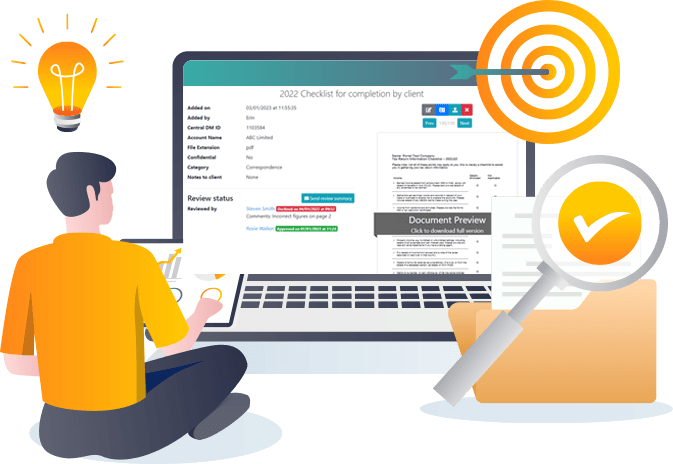
A recent survey of UK accountancy firms by IRIS Software Group found some interesting and I think somewhat concerning statistics around the use of anti-money laundering (AML) software – at least from an efficiency perspective.
According to the report, more than half of firms still use paper-based AML processes and 72 per cent have not mapped out their working processes in at least 18 months.
What this reveals is that onboarding as a process is low on the priorities list for some firms – despite the fact that this could open the door to risk and significantly reduced efficiency. It is important to note that firms do seem to take onboarding as a requirement seriously, albeit do not seem to focus energy or investment around making this process as efficient as possible and a great experience for clients and staff.
Taking a holistic view
Onboarding is a process which provides clients with their first major impression of your firm and its operations. If the process is long, disjointed or disrupted, then it can affect client experience at every subsequent stage, even if your service itself is excellent.
There are also many steps to onboarding, which means that no one stage can be viewed in isolation.
These include:
- AML checks
- Identity verification
- Know Your Client (KYC) checks
- Credit checks
- Other information you may want to collect
These are essential, both by law and from a strategic point of view, to protecting your practice and getting you and your clients off to the right start.
So what happens when this breaks down?
The problem of inefficiency
For the 56 per cent of firms still using paper-based AML processes, the best-case scenario is that their onboarding is smooth but slightly slower than it would be using a piece of software.
This is because AML is only one part of onboarding and therefore needs to be combined with other sources of information before the client can start to work with firms.
Paper-based processes have the potential to cause issues for your firm, particularly when handling sensitive information.
Papers are lost or leaked far more easily than encrypted digital information, in addition to being much slower than providing the same information online. When this happens, clients become frustrated and the relationship does not get off to a good start.
While your onboarding processes may not be outright losing clients for the firm, they may be hampering your firm’s reputation for an otherwise stellar service. In addition the opportunity cost of onboarding a client can be unnecessarily excessive
The problem with inefficiency is that many firms will tolerate it if it doesn’t result in damage to the firm itself – but from experience this is not the ideal approach.
Striving for more
Working processes can always be improved upon – and should always be improved upon.
Inefficiency can cost your firm financially in addition to client and staff frustration. In the case of onboarding, paper-based AML checks mean that other checks are carried out separately and potentially stored in a different location, which makes the process more prone to delays and errors.
To achieve this improvement, you first need to examine your processes, which currently only one in five firms are doing.
You should take a holistic view of your onboarding processes, , and look at where bottlenecks and frustrations are arising. This will help you to identify what you need from a solution.
Once you’ve done that, we’re here to help you find it.
We’ve built a solution which makes onboarding easy and accessible, storing all client information securely and in one place, with compliance and consistency at its core, also making all elements of the process connected and cloud based and provide a great user experience for your team and a superior first impression for your clients.
Want to book a demo? Contact our team today.